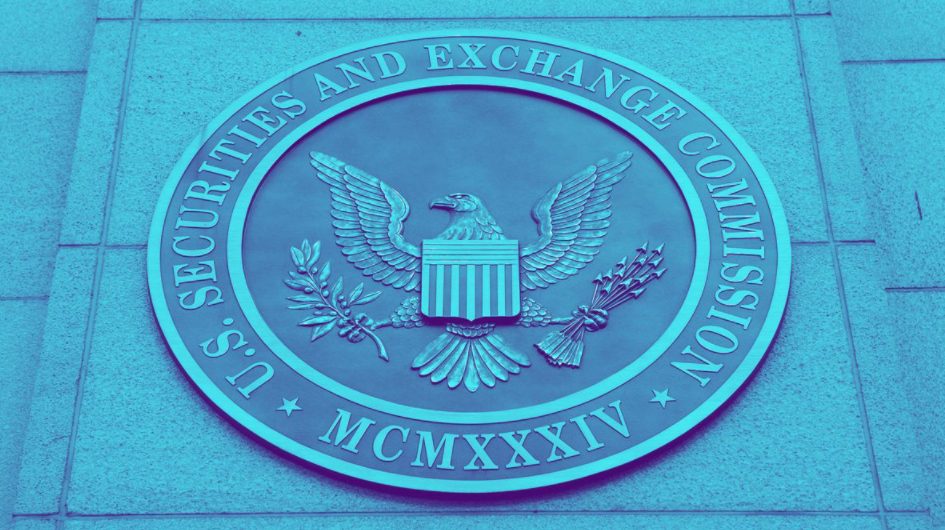SEC Letter Reveals China’s Crypto Ambitions Threaten US
Article Contents
Whether they’re ready for it or not, China’s authorities have kicked off a global digital currency race.
Just as some nations are now turning their attention to cryptocurrencies, the Coronavirus has accelerated the need for central bank-issued digital currencies. China has successfully embraced the technology, whose Digital Yuan has already seen surges in demand owing to the pandemic.
These events haven’t gone unnoticed by the rest of the world. Only last week, it was reported that John Ratcliffe, the U.S. Director of National Intelligence, has expressed concern to the Securities and Exchange Commission (SEC) over China’s move into digital money.
According to a Washington Examiner article, Ratcliffe wrote a letter to the SEC Chairman Jay Clayton highlighting the Chinese Communist Party’s technological advances in the digital currency space.
The note made specific reference to cryptocurrencies.
China as a Digital Finance Hub
China’s digital currency, known as the Digital Currency Electronic Payment (DCEP), has been widely used since its launch in April 2020. Already, the People’s Bank of China says that 2 billion digital yuan has been processed across 4 million transactions.
Central Bank Digital Currencies, often referred to as CBDCs, have been a key point of global discussion as of late. But while many governments are currently only at the stage of discussing digital currencies’ benefits, China was already developing its digital yuan in 2014.
Ratcliffe’s letter reportedly pointed out that China is home to more than half of the world’s cryptocurrency mining operations. The degree to which Bitcoin is geographically centralized has been discussed in the past: a recent report from Cambridge Centre for Alternative Finance concluded that China accounts for around 65% of Bitcoin’s hash rate.
The exact figure is hard to quantify, though it’s generally accepted that China is a stronghold for cryptocurrency mining. Thomas Heller, a team member at Bitcoin mining company Compass, told Crypto Briefing:
“From my experience working in the industry, and visiting many of these mining farms, I believe that China has more than 50% of the [Bitcoin] network’s hashrate.”
But China has taken a stringent approach towards regulating crypto assets: in September 2017, it was widely reported that the authorities had made efforts to ban Bitcoin. The move led to a shutdown of Chinese cryptocurrency exchanges.
The government has also enforced a crackdown on over the counter services that miners and traders rely on. Moreover, it was recently revealed that Chinese authorities own 1% of Bitcoin’s circulating supply in the fallout from the widely-publicized PlusToken scam.
Despite these ongoing attacks on the crypto space, Chinese President Xi Jinping has long advocated for blockchain technology’s disruptive potential. In October 2019, he delivered a speech outlining his intentions to “embrace digital finance” as part of a move to gain an “edge over other major countries.”
Digital currencies could create a more open financial system. While this has several benefits, it’s possible that an authoritarian state like China could use the technology to gain further control over its population.
If digital currencies are to see wider adoption, asserting early dominance over the space would benefit the country’s alleged plans to become a global economic leader.
SEC Slow to Respond to Crypto
China’s actions are of particular concern to the U.S., its clearest rival in the global superpower leagues.
Beyond Ratcliffe, Senator Tom Cotton also contacted Clayton after watching China’s adoption of digital assets. In a July 2020 letter, he urged regulators to develop a U.S. digital currency policy, stating:
“The continued lack of regulatory clarity not only hurts U.S.-developed digital assets, it puts American national and economic security gravely at risk.”
Despite the SEC’s conclusion that Bitcoin and Ether were not securities in June 2018, the body has faced much criticism over its handling of cryptocurrencies.
The news of Clayton’s imminent departure from the organization was met with celebration from the cryptocurrency community, who have often criticized his lack of clear guidance.
Crypto’s Future in China and U.S.
At this stage, it’s equally unclear how China intends to navigate the potential growth of the cryptocurrency space over the coming years.
Heller agrees with this viewpoint, explaining that he believes it’s “a hard one” to forecast.
While President Xi Jinping has shown enthusiasm for blockchain, signs suggest that the country is looking to grow the digital yuan while suppressing public cryptocurrencies like Bitcoin. Should the Chinese Communist Party decide to opt for a Bitcoin-friendly approach, it could be their chance to capitalize on the U.S. government sitting in limbo.
Both outcomes would see China placing a bet on the growth of digital currencies in place of more traditional forms of fiat money.
How the U.S. will respond remains to be seen, but based on Ratcliffe and Cotton’s letters, at least two people think that the country is at risk of getting left behind.
I am Campurro, one of the founders of MonetaVerde Coin.
